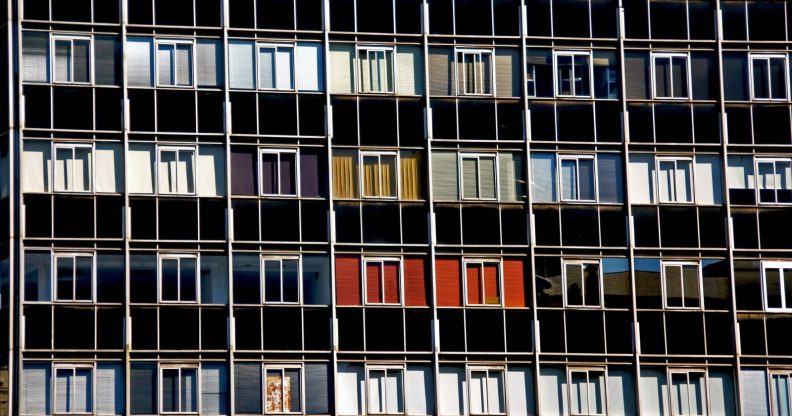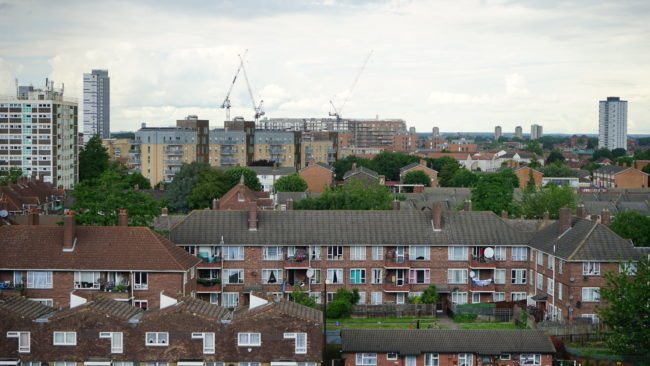Harassed, unsafe, and lonely: landmark report reveals the reality of living in social housing if you’re LGBT+

There are a lot of ways that LGBT+ people have to live their lives that adds a great deal of stress, insecurity, and can even threaten the wellbeing of the person at hand.
An academic report released today has discovered that a third of LGBT+ residents have said that they do not feel safe in their social housing, with nearly 50 percent of LGBT+ people living in social housing accommodation not feeling a sense of belonging.
The survey, which was conducted by the University of Surrey and Goldsmiths, University of London and spanned the six largest housing authorities in the UK, found that 60 percent of trans people and more than a third of LGBT+ people do not feel safe in their neighbourhood.
Asking 260 LGBT+ people living in social housing about their experiences, the nationwide survey noted that not only do several LGBT+ residents feel unsafe, feel lonely, unsupported by their landlords, they also feel the need to alter their homes to hide their identity or sexuality if a landlord or maintenance worker comes to visit.
Twenty percent of residents say that they hide DVDs, books or even pictures ‘always’ or ‘most of the time’.

More than a third (34 percent) felt that housing providers have more work to do in dealing effectively with complaints about harassment and some reported that their complaints were not taken seriously or were investigated very slowly.
“Despite changes in equality laws, it is disappointing and worrying that in 2018 a significant number of social housing tenants still feel unsafe and experience harassment in their own neighbourhoods. What we have seen is that many feel that their concerns and complaints are not being given proper attention by housing providers,” said lead researcher on the project at the University of Surrey, Dr Andrew King.
“To help address this, social housing providers need to improve the lines of communication between staff and residents and develop supportive procedures to deal with complaints of abuse and harassment.
“Housing providers also need to be more openly LGBT*Q supportive, train their staff on a regular basis and as some people we interviewed put it ‘go above and beyond’ the basic requirements of equality legislation. LGBT*Q social housing tenants need to know they are valued tenants who are treated fairly and with respect.
“These small steps should help engage LGBT*Q social housing residents and ensure they are a part of the community where they live.”

